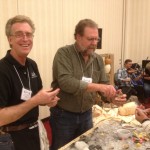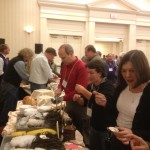NSA 2018 Meeting
110th National Shellfisheries Annual Meeting. March 18 – 22, 2018 in Seattle, Washington, USA. schedule
19th International Conference on Shellfish Restoration (with the Australian Shellfish Reef Restoration Network)
19th International Conference on Shellfish Restoration will be held in Adelaide, Australia from the 19th – 22nd February, 2018 meeting information
24th Biennial CERF Conference (CERF2017)
5-9 Nov. 17 in Providence, RI.
CERF meeting took place on 5-9 Nov. 17 (see http://www.erf.org/cerf-2017-biennial-conference), the conference info is provided as follows (pdf) and link.
102nd ESA Annual Meeting
 The 102nd ESA Annual Meeting in Portland, Oregon was held on August 6-11, 2017.
The 102nd ESA Annual Meeting in Portland, Oregon was held on August 6-11, 2017.
The program, Linking biodiversity, material cycling and ecosystem services in a changing world.
Biodiversity is the foundation for almost all ecosystem services. The known relationships, though, between biodiversity and material cycling may or may not inform the translation into ecosystem services. As the concept of the ecosystem service is of interest not only to scientists but also to policy makers and stakeholders, understanding the relationship between these three components is essential. The 102nd annual meeting included sessions that focus on and explore, in general, how biodiversity is the foundation for many ecosystem services, how ecosystem functioning can translate into ecosystem services, and the role different dimensions of biodiversity play in developing such understanding.
World Aquaculture 2017
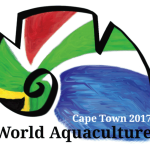 World Aquaculture 2017 meeting was held in Cape Town, South Africa on Jun. 27-30, 2017 (see https://www.was.org/meetings/default.aspx?code=WA2017). The themes were sustainable aquaculture, new frontiers for economic growth, with a spotlight on Africa. See pdf link for more information.
World Aquaculture 2017 meeting was held in Cape Town, South Africa on Jun. 27-30, 2017 (see https://www.was.org/meetings/default.aspx?code=WA2017). The themes were sustainable aquaculture, new frontiers for economic growth, with a spotlight on Africa. See pdf link for more information.
NSA 2017 Meeting
109th National Shellfisheries Association Annual Meeting was held on Mar. 26 – 30, 2017, in Knoxville, Tennessee, USA
RAE 2016 Summit
8th RAE 2016 and 25th biennial Coastal Society Meeting entitled “Our Coasts, Our Future, Our Choice”. Meeting held on Dec. 10-15, 2016 in New Orleans, LA.
Oyster Integrated Mapping and Monitoring Program (OIMMP) Workshops

The first workshop was held on Thursday, February 23rd and Friday, February 24th 2017 at the Guana Tolomato Matanzas National Estuarine Research Reserve (GTMNERR) in St. Augustine, Florida. The goals of the first workshop were to: (1) bring together representatives from mapping and monitoring programs across the state to foster communication; (2) leverage any duplicate efforts, and identify data gaps and needs; (3) compare mapping and monitoring methods for oyster reefs, identify ways to foster data sharing; and (4) compile local, regional, and statewide mapping and monitoring efforts. Related information includes the itinerary (PDF) and associated OIMMP workshop link.
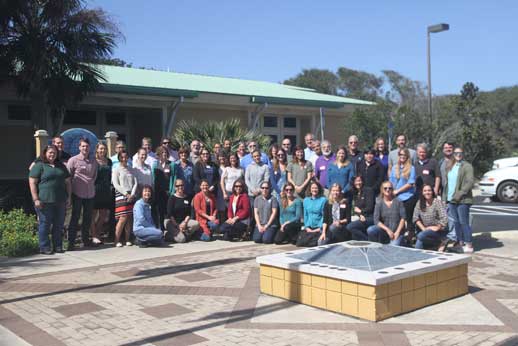
A second workshop supported by SWG funding was held (also at GTMNERR) on May 22nd-23rd 2018. The goals of this follow-on workshop were to bring together again representatives from oyster mapping and monitoring programs from across FL to continue efforts to foster communication, compare methods, leverage any duplicate efforts, and identify data gaps and needs. A number of breakout sessions were included to discuss subjects such as options for monitoring restoration efforts, On the attached itinerary under “Resources” are listed new links to a variety of FL historical GIS, aerial photography, and associated maps. The document mirroring past FWRI Seagrass Integrated Mapping and Monitoring (SIMM) and Coastal Habitats Integrated Mapping and Monitoring Program (CHIMMP) reports for oysters is in progress encompassing 9 chapters. Predicted publication date could be 3 years with technical reviews and editing, etc.
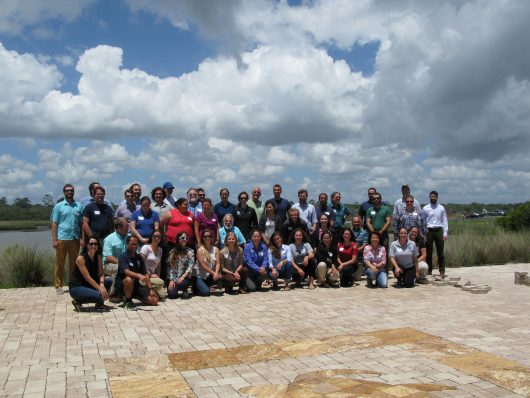
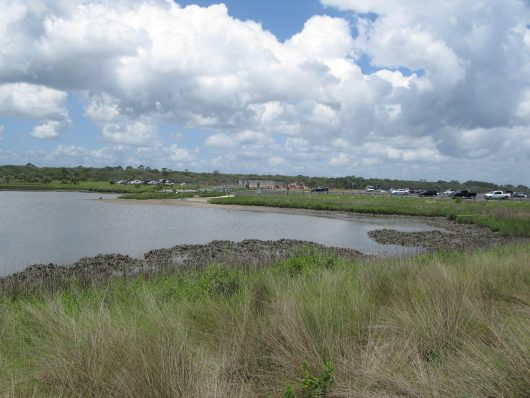
The itinerary for the workshop included the following:
Afternoon of Tuesday, May 22nd
-Update on OIMMP progress and statewide oyster map compilation, discussion of collaborative FWRI report
-Attendee presentations about oyster mapping and monitoring projects, management recommendations, and future implications for oyster reefs in Florida
Morning of Wednesday, May 23rd
-Continuation of attendee presentations
-Breakout sessions. Discuss mapping and monitoring priorities for the state.
Contact Kara Radabaugh, Ryan Moyer, or Steve Geiger using the contact information below for more info.
The OIMMP seeks to foster communication between local, regional, and statewide oyster mapping and monitoring programs. Its goals are to establish partnerships and facilitate collaboration between mapping and monitoring programs in Florida.
Background on the program:
Based out of the Florida Fish and Wildlife Conservation Commission’s Fish and Wildlife Research Institute (FWRI), OIMMP seeks to foster communication between local, regional, and statewide oyster mapping and monitoring programs. OIMMP is modeled after the Seagrass Integrated Mapping and Monitoring (SIMM) program and Coastal Habitats Integrated Mapping and Monitoring Program (CHIMMP) at FWRI, which have facilitated the coordination of seagrass and coastal wetland mapping and monitoring activities within the state. To learn more about the CHIMMP framework, please visit: http://ocean.floridamarine.org/CHIMMP/
For additional info please contact either Dr. Kara Radabaugh (kara.radabaugh@myfwc.com, 727-502-4986), Dr. Ryan Moyer (ryan.moyer@myfwc.com, 727-892-4153), or Dr. Steve Geiger (Steve.Geiger@MyFWC.com, 727-502-4918) at Florida Fish & Wildlife Conservation Commission, Fish & Wildlife Research Institute, 100 8th Avenue SE, St. Petersburg FL 33701.
Chesapeake Bay Oyster Summit (NOAA Chesapeake Bay Office) February 18-19, 2016
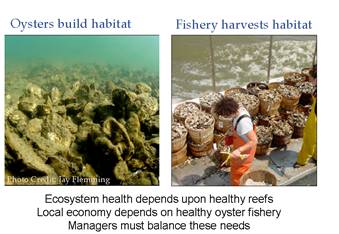
(from D. Bushek, Rutgers Univ., Plenary, and K. Alcox)
Held at University of Mary Washington – Stafford Campus, Fredericksburg, VA 22406 (http://www.chesapeakebay.net/calendar/event/23465/)
The NOAA Chesapeake Bay Office hosted an Oyster Summit to convene a broad group of stakeholders that included managers, industry, scientists, non-governmental organizations and community groups, across jurisdictions to discuss shared interests in increasing the number of oysters in the Chesapeake Bay (Agenda pdf and link)
Presentations and handouts are posted on the above link. The presentations are labeled with their session number from the agenda. Background / reference materials are labeled as such.
Related Files:
- Agenda for Oyster Summit
- Chesapeake Bay Oyster Summit Summary Report
- List of Attendees
- Opening plenary presentation, Mark Luckenbach, VIMS
- Ward Slacum, Shell availability and alternative substrate, ORP
- Eric Weisberger, Shell/substrate overview, MDDNR Fisheries Service
- Jim Wesson, Shell/substrate overview, VMRC
- Len Zuza, SMOCS, Community panel overview
- Len Zuza, SMOCS, Essential elements for successful community oyster restoration
- Derr, J., et al., W & M, Oysters In the Chesapeake Bay: the economic, policy, and legal landscapes
- Lease summary, W & M students
- Economic landscape, W & M students
- Amy Freitag, VA Sea Grant, Ecosystem-based fisheries management
- David Bushek, Kathy Alcox, Lisa Calvo, Rutgers U., Sustainable fishery – sustainable habitat managing oysters in Delaware Bay
- Elizabeth North, U. MD, CES, and other scientists and facilitations, Summit background resources
Oyster Summit
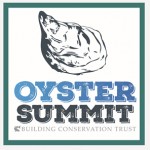 Oyster Summit, Baltimore, MD, April 27-28, 2016 sponsored by the Building Conservation Trust (the supporting organization of the Coastal Conservation Association (CCA)
Oyster Summit, Baltimore, MD, April 27-28, 2016 sponsored by the Building Conservation Trust (the supporting organization of the Coastal Conservation Association (CCA)
http://www.buildingconservation.org/BCT/BCT_Oyster_Summit.aspx
Two-day event seeks to gather leading stakeholders and innovators in oyster habitat restoration as a means to showcase regional best practices and begin a national dialogue.
South Atlantic Living Shorelines (LSL) Summit
Jacksonville, Florida on April 12-13, 2016, Contact: Ana Zivanovic-Nenadovic (anaz@nccoast.org) 252.393.8185
The South Atlantic LSL Summit will examine current LSL practices, challenges, and opportunities, especially for those working in Florida, Georgia, North Carolina, and South Carolina. At DoubleTree by Hilton Jacksonville-Riverfront, 1201 Riverplace Blvd., Jacksonville, FL 32207. Tuesday, April 12, 2016, 8:00 AM- to Wednesday, April 13, 2016 at 4:00 PM EDT.
Aquaculture 2016
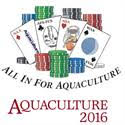 Las Vegas, Nevada, February 22-26, 2016
Las Vegas, Nevada, February 22-26, 2016
Paris Hotel and Convention Center
Abstract deadline is August 31st
NSA Co-Sponsor
See link
Meeting brochure link and PDF
Living Shorelines: Sound Science, Innovative Approaches, Connected Community
December 1-2, 2015, Hartford, CT
See https://www.estuaries.org/living-shorelines-national-technology-transfer-and-regional-workshops
23rd Biennial CERF Conference 2015
Special Theme: Grand Challenges in Coastal & Estuarine Science: Securing Our Future
Presentations examined new findings related to scientific, education and management disciplines and among coastal and estuarine scientists and managers. Also, the Scientific Program Committee convened a number of special sessions and workshops promoting the Grand Challenges in Coastal and Estuarine Science.
See conference website for more information
Full Program, see also https://cerf.memberclicks.net/assets/2015_Conference/cerf2015_program_web.pdf
World Oyster Society (WOS) Science, Culture, & Industry
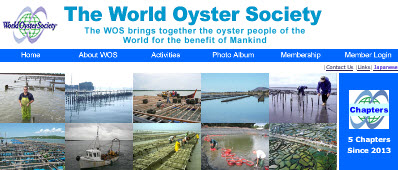 World Oyster Society is holding the 5th Oyster Symposium in North America in 2015. The venue will be in Falmouth, MA from October 21-23, 2015. Several sessions will be dedicated to oyster restoration issues (see http://oystersymposium.org/). Note that the 7th International Oyster Symposium (IOS7) will be held in UK in 2017.
World Oyster Society is holding the 5th Oyster Symposium in North America in 2015. The venue will be in Falmouth, MA from October 21-23, 2015. Several sessions will be dedicated to oyster restoration issues (see http://oystersymposium.org/). Note that the 7th International Oyster Symposium (IOS7) will be held in UK in 2017.
The World Oyster Society (WOS) was formally established in July, 2005, at the General Discussion of the 1stInternational Oyster Symposium (IOS1) held in Tokyo, Japan and was organized by the Foundation of Oyster Research Institute, Japan (ORI). Dr. Katsuyoshi Mori (President and Board Chairman of ORI) was named as the first President of the WOS. In November, 2007, the 2nd International Oyster Symposium (IOS2) was held in Hangzhou, Zhejiang Province, China. In November, 2009, the 3rd International Oyster Symposium (IOS3) was held in Taipei, Taiwan. In September, 2011, the 4th International Oyster Symposium (IOS4) was held in Hobart, Tasmania, Australia, under the theme of “Embracing the Future through Innovation”. In December, 2013, the 5thInternational Oyster Symposium (IOS5) was held in Ho Chi Minh City, Vietnam. Partial organization of that meeting was with the Asian Pacific Chapter of the World Aquaculture Society (APC-WAS).
107th Annual NSA Meeting, Monterey Bay, CA
March 22 – 26, 2015
Special sessions included: bivalve impacts on eutrophication (L. Kellogg), calification (A. Mount), climate change/ocean acidification (Waldbusser), diseases (R. Smolowitz, K. Reece), Olympia Oysters (K. McGraw, N. Cosentino-Manning), restoration (B. Hancock and B. Dumbauld), to name a few.
There was a diverse and interesting group of plenary speakers including Peter Cook (University of Western Australia), Paul Dayton (Scripps Institution of Oceanography), Sam Dupont (University of Gothenburg) and Robert Vrijenhoek (Monterey Bay Aquarium Research Institute).
Plenary Speakers
NSA 2015 program (PDF)
Northeast Aquaculture Conference & Exposition
Northeast Aquaculture Conference & Exposition and the Milford Aquaculture Seminar in association with Aquaculture Assoc. of Nova Scotia, PEI Aquaculture Alliance, Atl. Canada Fish Farmers Assoc.
14-16 January 2015
http://www.northeastaquaculture.org/
Call for Papers, Posters and Technology Transfer Sessions, NACE abstracts are due October 31!
http://www.northeastaquaculture.org/program/
RAE and The Coastal Society Summit: Inspiring Action, Creating Resilience: Nov. 1-6 2014
Restore America’s Estuaries and The Coastal Society are collaborating to present the first ever National Summit bringing together restoration and coastal management communities for an integrated discussion on issues, solutions and lessons learned related to estuarine and marine restoration.
http://www.estuaries.org/about-2014.html
“http://www.estuaries.org/frequently-asked-questions.html
http://www.estuaries.org/schedule.html
68th Annual Conference of the Southeastern Association of Fish and Wildlife Agencies
FISHERIES SYMPOSIUM – Aquatic Habitat Restoration (Sunday, October 19 – Wednesday, October 22, 2014, Destin, Florida)
Fish and wildlife aquatic habitats are under continual threat of alteration by human activities. Habitat losses and degradation due to these activities are critical issues that must be addressed to secure fish and wildlife populations across the Southeastern U.S.A. The development of programs and partnerships to conserve and restore aquatic habitats has rapidly evolved over the last decade. This symposium provides an opportunity for leading experts in the restoration of freshwater and marine habitats to (1) highlight habitat restoration techniques; (2) discuss challenges faced in their specific habitats and how they are overcome; (3) discuss the importance and role of developing partnerships to complete restoration projects; and (4) provide an overview of restoration for specific aquatic habitats across SEAFWA state
http://www.seafwa.org/conferences/2014/index.html
http://www.seafwa.org/conferences/2014/html/schedule.shtml
http://www.seafwa.org/conferences/2014/html/symposium.shtml#DHO-Symp (Deepwater Horizon Oil Spill Response, Research and Recovery)
http://www.seafwa.org/conferences/2014/html/fisheries.shtml#FS1 (FISHERIES SYMPOSIUM – Aquatic Habitat Restoration)
Where’s the Reef? Extent, Methods and Outcomes from Oyster Reef Restoration in the Southeast
Megan La Peyre, U.S. Geological Survey, Louisiana Cooperative Fish and Wildlife Research Unit, School of Renewable Natural Resources, Louisiana State University Agricultural Center, Baton Rouge, LA; Loren Coen, Florida Atlantic University, Harbor Branch Oceanographic Institute, FL; Lindsay Schwarting Miller, School of Renewable Natural Resources, Louisiana State University Agricultural Center, Baton Rouge, LA
2013 Southeast Tidal Creeks Summit: Presentations (NC Sea Grant)
Info and ppt access to presentations on southeastern (NC-FL) tidal creeks, oyster and salt marsh ecology and restoration, ecosystem services, inverts, nutrients, pollutants, and stormwater treatment presentations.
Of special interest:
- Polycyclic Aromatic Hydrocarbons in Sediments and Oysters Collected in S.E. North Carolina. Ralph Mead, UNCW.
- Indicators of the Occurrence of Vibrio in the Winyah Bay, SC, Estuary. Dan Tufford, USC.
- Trace Metals, Including Mercury, in Oyster Tissues and Sediments, New Hanover and Brunswick Counties, NC. Stephen Skrabal, UNCW.
- Assessment of Particulate Removal Associated with the Presence of Oyster (Crassostrea virginica) Structure in a Tidally Dominated Creek System: Partitioning of Active and Passive Particle Removal. Mary Grace Lemon, UNCW.
- Building Rain Gardens to Restore Oyster Reefs: Watershed Stormwater Reduction Coupled with Restoring Oyster Reefs in Tidal Creeks. Ted Wilgis, NCCF.
- Monitoring and Improving Intertidal Oyster Resources in SC Through the Use of Helicopter-Based Aerial Surveying. Katherine Luciano, MRRI-SCDNR
- Sampling Grass Shrimp in Georgia’s Tidal Creeks: Providing a Foundation for Student Research Via Long-Term Monitoring. Katherine Doyle, Savannah State University.
- Restoration of Oyster Reefs in Tidal Creeks: Does Landscape Matter? Marc Hanke, UNCW.
- The First Steps to Restoring Ecosystem Services Within a “Degraded” Tidal Creek. Keith Walters, Coastal Carolina University.
- Expanding Living Shorelines Through Stakeholder-Driven Site Selections for Intertidal Oyster Reef Building in the ACE Basin NERR, South Carolina. Benjamin Stone, MRRI-SCDNR
- The Eastern Oyster (Crassostrea virginica) as a Modifier of Epizooic Microalgal Biomass: The Influence of Oyster Reef Characteristics and Associated Particulates. Troy Alphin, UNCW.
- Relationships Between Land Use, Land Cover Change and Changes in Juvenile Fish, and Invertebrate Abundance in the Estuarine Nursery Areas of North Carolina. Gregory Meyer, Forsyth Technical Community College.
See https://ncseagrant.ncsu.edu/news-events/events/tcs/tcs2013-presentations/

NSA 106th Annual Meeting Jacksonville, Florida, USA
March 29 – April 2, 2014 (early program)
Benthic Ecology Meetings
Past and Present Meetings
BEM 2018
BEM 2018 (47th Benthic Ecology Meeting) took place on March 27-30, 2018, in Corpus Christi, TX.
The BEM 2018 Organizing Committee, Drs. Lee Smee, Paul Montagna, Jennifer Pollack, and Ed Proffitt. For more Information see (pdf) or link for program, as well as pdf and link for abstract book.
BEM 2017

The 46th Benthic Ecology Meeting took place along with the Southeastern Estuarine Research Society (SEERS) Spring Meeting 2017 on April 12-16, 2017 in the Myrtle Beach, South Carolina, hosted by Coastal Carolina University.
See link for more info. See programs of talks (pdf and link) and posters (pdf and link) and links (see pdf and link).
BEM 2016
 The 45th Benthic Ecology (BEM) meeting was hosted by Bowdoin College in Portland, Maine, on March 16-March 19, 2016. A plenary lecture was given by Dr. Boris Worm. The meeting was filled with the latest research in ‘marine ecology’, including oral presentations and posters on a variety of subjects including: anthropogenic impacts, biological invasions, biodiversity, chemical and community ecology, conservation and management, arctic and deep sea biology, ecosystem functioning, evolution, fisheries, life history strategies, metapopulation, population genetics, restoration, molecular ecology, recruitment/larval ecology, coral and oyster reef ecology, and feeding relationships.
The 45th Benthic Ecology (BEM) meeting was hosted by Bowdoin College in Portland, Maine, on March 16-March 19, 2016. A plenary lecture was given by Dr. Boris Worm. The meeting was filled with the latest research in ‘marine ecology’, including oral presentations and posters on a variety of subjects including: anthropogenic impacts, biological invasions, biodiversity, chemical and community ecology, conservation and management, arctic and deep sea biology, ecosystem functioning, evolution, fisheries, life history strategies, metapopulation, population genetics, restoration, molecular ecology, recruitment/larval ecology, coral and oyster reef ecology, and feeding relationships.
BEM 2015
The 44th Annual Benthic Ecology Meeting was hosted by Université Laval in Quebec City, Canada, from March 4th to 8th 2015.
The final program is now available (pdf). Note that Th am (Conservation & Management I) had a lot of relevant oyster papers in it.

The 44th Annual Benthic Ecology Meeting (BEM) was held in Quebec City, Canada, at the Fairmont Le Château Frontenac from March 4th to 8th, 2015.
BEM is one of the largest scientific meetings for marine biologists in North America. Université Laval was proud to host the 44th meeting; over 400 people were attended with a mix of marine ecologists and graduate and undergraduate students.
Ladd Johnson and Mathieu Cusson
http://www.bemsociety.org/conference.html
http://www.bemsociety.org/uploads/4/2/1/5/42158527/abstracts_bem2015.pdf
http://www.bemsociety.org/uploads/4/2/1/5/42158527/program_gm2.pdf
44th BEM in Quebec City, Canada
43rd BEM in Jacksonville, Florida
42nd BEM in Savannah, Georgia
41st BEM in Norfolk, Virginia
40th BEM in Mobile, Alabama
39th BEM in Wilmington, North Carolina
38th BEM in Corpus Christi, Texas
37th BEM in Providence, Rhode Island
36th BEM in Atlanta, Georgia
35th BEM in Quebec City, Quebec
34th BEM in Williamsburg, Virginia
33rd BEM in Mobile, Alabama
32nd BEM in Groton, Connecticut
31st BEM in Orlando, Florida
N.C. Oyster Summit: Promoting a Healthy Coastal Environment and Economy (organized by NCCF)
NCCF
When Held: March 10 & 11, 2015
Where Held: N.C. Museum of Natural Sciences, Raleigh, NC
Overview: A day and a half summit with a legislative reception to explore innovative strategies to restore oysters and oyster habitat in N.C., boost oyster production and ensure a healthy and growing coastal economy.
Summit Objectives:
- Explore the economic and environmental returns on investing in N.C. oyster restoration, enhancement and production.
- Update the Oyster Blueprint for Action to rebuild N.C. oyster habitat, stocks and fisheries, and improve the state’s coastal water quality and economy.
- Discuss prioritized scientific challenges to implementing successful oyster restoration strategies in N.C.
Who was Invited: Elected officials, economic developers, fishers, educators, interested citizens, scientists, resource managers, and shellfish growers involved in establishing public policy, researching, monitoring, managing, growing, and harvesting oysters in N.C.
For more information, contact Erin Fleckenstein at erinf@nccoast.org or 252.473.1607.
North Carolina Oysters: A Workshop to Chart Future Restoration, Learning From the Past
When Held: March 12-13, 2014
Where Held: NOAA, Beaufort Laboratory Auditorium, 101 Pivers Island Road, Beaufort, NC 28516
Synopsis of: North Carolina Oysters Twenty years of oyster research, restoration, and management in North Carolina: A Workshop to Chart Future Restoration, Learning from the Past (Revised Final Workshop Agenda and Final Proceedings)
2013 Mid-Atlantic Living Shorelines Summit
Hyatt Regency, Cambridge, MD, December 10 & 11, 2013
The Maryland Department of Natural Resources (MD DNR), Chesapeake Bay Trust (CBT), and Restore America’s Estuaries (RAE) are collaborating on convening the first Mid-Atlantic regional living shorelines meeting since the landmark 2006 Chesapeake Regional Living Shorelines Summit. meeting link; pdf link for final agenda; presentations
The majority of presentations from the Mid-Atlantic Living Shorelines Summit and to other resources are now available.
Also see the Restore America’s Estuaries site for the LinkedIn Living Shorelines group
SER 2013
The SER 2013, October 6-11, 2013, 5th World Conference of the Society for Ecological Restoration is entitled “Reflections on the Past, Directions for the Future”
Over 1,200 attendees from around the world registered for the meeting in Madison, WI, October 6-11, 2013 who are interested in the science and practice of ecological restoration as it relates to natural resource management, climate change responses, biodiversity conservation, local and indigenous communities, environmental policy and sustainable livelihoods.
http://www.ser2013.org/
Abstracts
SER 2013 World Conference Program
For a dedicated session related to bivalve restoration see https://ssl.linklings.net/conferences/ser/ser2013worldconference_program/views/at_a_glance.html, https://ssl.linklings.net/conferences/ser/ser2013worldconference_program/views/by_date.html#orl844
Session 3.11 Symposium – Bivalve restoration: Restoring ecosystem services, setting goals and moving forward
Chair: Boze Hancock (The Nature Conservancy)
Achieving ecosystem scale oyster reef restoration: A trajectory of shellfish restoration in the U.S.
Bryan M. DeAngelis and Boze Hancock (The Nature Conservancy)
Setting oyster restoration goals to meet society’s needs.
Boze Hancock (The Nature Conservancy), Philene zu Ermgassen (Cambridge University) and Mark Spalding and Robert Brumbaugh (The Nature Conservancy)
Protecting shorelines with oyster reefs: A coastal resilience toolkit
Judy Haner (The Nature Conservancy)
Quantifying oyster reef ecosystem services: Denitrification, nutrient assimilation and food web support
M. Lisa Kellogg (Virginia Institute of Marine Science, College of William & Mary), Jeffrey C. Cornwell and Michael S. Owens (University of Maryland Center for Environmental Science, Horn Point Laboratory) and Mark W. Luckenbach (Virginia Institute of Marine Science, College of William & Mary)
Economic valuation of ecosystem services provided by oyster reefs
Jonathan H. Grabowski (Northeastern University), Robert D. Brumbaugh (The Nature Conservancy), Robert F. Conrad (Duke University), Andrew G. Keeler (UNC Coastal Studies Institute), James J. Opaluch (University of Rhode Island), Charles H. Peterson and Michael F. Piehler (University of North Carolina at Chapel Hill), Sean P. Powers (University of South Alabama and Dauphin Island Sea Lab) and Ashley R. Smyth (University of North Carolina at Chapel Hill)
67th Annual Pacific Coast Shellfish Growers Association (PCSGA) and NSA Pacific Coast Section Shellfish Conference and Trade Show
September 30-October 3, 2013, Sunriver, OR, see link
Call for Presentations
INTECOL 2013
18th to 23rd August 2013, ExCel, London, U.K. The theme of the Congress is Advancing Ecology and Making it Count
http://www.intecol2013.org/
Biennial International Congress for Conservation Biology 2013
July 21-25, 2013, Baltimore, MD, USA, http://www.conbio.org/mini-sites/iccb-2013
2013 Introduction to Intensive Oyster Culture Workshop Materials

Held Thursday, September 26th and 27th, 2013 at the FSU Coastal and Marine Laboratory, St. Teresa, FL and Kirkpatrick Marine Lab, Cedar Key, FL, respectively
Organized by Leslie Sturmer, University of Florida IFAS and Florida Sea Grant, Shellfish Aquaculture Extension Program and Portia Sapp, FDACS, Division of Aquaculture
Also Kim Norgren and Paul Zajicek, Florida Department of Agriculture and Consumer Services, Division of Aquaculture and Dr. William (Bill) Walton, Auburn University Shellfish Laboratory and Alabama Cooperative Extension Service
PDFs and link (http://shellfish.ifas.ufl.edu/workshop_2013_oyster.html) for workshop
- ACOE NMFS Permitting Info
- Time Limits for Oyster Harvest_modified
- Oyster Tags_Examples_modified
- Oyster Culture Gear Suppliers Workshops_2013
- Off Bottom Oyster Farming Gear Types_Gulf of Mexico
- Off Bottom Oyster Farming _Alabama
- Navigational Marking of Off Bottom Oyster Culture Leases
- Intro Oyster Culture Workshop_2013_AGENDA
Louisiana Oyster Reef Workshop
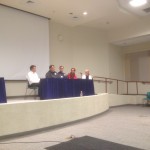
August 7th and 8th, 2013
Sponsored The Lake Pontchartrain Basin Foundation and The Environmental Defense Fund
The workshop included presentations by experts on natural oyster populations, oyster reef restoration and related living shoreline efforts.
Topics also included historic and current oyster reef extent, oyster reef ecology and related ecologic benefits to other fisheries, shoreline stabilization, permitting and liability for restored reefs by NGOs, academia and government agencies. Panel included discussions of LA’s State Master Plan and related CWPPRA Projects. Additional information will be provided on the Lake Pontchartrain Basin Foundation’s website (see http://www.saveourlake.org/), including videos of and associated presentations. Pdf
6th National (RAE) Conference on Coastal and Estuarine Habitat Restoration: Restoring Ecosystems, Strengthening Communities
October 20-25, 2012 at the Tampa Convention Center, Tampa, Florida
2012 RAE Presentations Related to the Draft “Oyster Habitat Restoration Monitoring and Assessment Manual” that was out for Comment
http://www.estuaries.org/pdf/
http://www.estuaries.org/pdf/
http://www.estuaries.org/pdf/
http://www.estuaries.org/pdf/
http://www.estuaries.org/pdf/
https://www.estuaries.org/pdf/
Creating Oyster Reef Habitat to Enhance Water Quality, Biodiversity, and Shoreline Protection
Oyster Restoration Workshop at the University of Florida, Indian River Research and Education Center, in Fort Pierce on Wednesday, June 13, 2012.
The workshop included FL Sea Grant staff, regional east coast FL practitioners (County, state, Federal staff, students, and community stakeholders) actively involved in oyster restoration efforts, as well as the public.
The workshop was organized by R. LeRoy Creswell, from the University of Florida Sea Grant Program, Indian River Research and Ed. Center (772-834-9062, creswell@ufl.edu).
![]() Oyster Restoration Workshop flyer
Oyster Restoration Workshop flyer
![]() Oyster Restoration Workshop contacts
Oyster Restoration Workshop contacts
Aquaculture 2010
March 1-5, 2010: San Diego, California
![]() Olympia Oyster Research and Restoration
Olympia Oyster Research and Restoration
Measuring, Valuing and Creating Markets for Non-Extractive Ecosystem Services Associated with Bivalve Shellfish
September 24-25, 2008: University of Rhode Island, Kingston, Rhode Island, USA
Workshop Objectives: (1) Identify and quantify non-extractive ecosystem services that have direct or indirect economic value (i.e., those with documented value or those services that might reasonably be expected to be of significant economic value); (2) Synthesize ecological information and compile case studies of valuation methodologies directly useful for supporting management decisions; (3) Identify market institutions for each ecosystem service that could potentially be effective in providing private incentives; and (4) Identify critical information gaps and design a research agenda for addressing these information gaps in near-term.
Florida Oyster Restoration Summit
March 14-15, 2007: Florida FWCC Fish and Wildlife Research Institute, St. Petersburg, Florida, USA
The primary goals of the workshop were to introduce those active in reef restoration to one another, to learn the specific details of the many restoration projects that are underway, to provide those practitioners with an ecological and regulatory framework within which to consider their restoration projects, and to establish a durable conduit for communication among groups. To accomplish these goals, the first day of this two-day workshop was devoted to presentations from scientists and managers regarding oyster reef ecology and function, physical structure of reefs, present status of reefs in Florida coastal waters, practical considerations for building a reef, and the permitting requirements associate with reef construction. The second day of the workshop was then devoted to descriptions of specific reef restoration projects, and a total of eleven case studies were presented. The workshop ended with a panel discussion of issues and considerations regarding reef restoration and function.
The workshop was surprisingly well-attended and rewardingly well-received. Over 80 representatives from government, academia, NGOs, and private interests attended to hear a total of 26 presentations. Opportunities to meet, greet, and discuss topics of interest occurred during morning and afternoon hospitality sessions, during lunch, and during evening grazing expeditions. However, the true value of the workshop will only be realized with regard to the achievement of those original goals, with particular emphasis on increased communication among the various groups. Work is underway to develop a web-based communication scheme.
Panel Discussion General Findings
We posed the question “What factors should be considered when deciding how to scale restoration projects.” The general observations gleaned from the discussion were: The purpose of the restoration project and site specific characteristics will inform decisions on the scale or size of any particular project. For example, if the intent is to restore oyster beds to known historic distributions one must have information on the historic distributions, current site conditions such as water quality and seasonal flow regime, and future activities that may impact water quality and flow regime. Economics will drive the scale of restoration projects designed to enhance aquaculture. While some restoration project may seek to restore all of the services once provided by now vanished or greatly diminished reefs, others may wish to focus on a specific service such as water quality improvement or wave abatement. In such cases, projects can be scaled to achieve the desired level of service within the constraints of existing environmental parameters. Due to substantial changes in some watersheds and ⁄ or estuaries, it may not be appropriate (or possible) to restore reefs in historic locations or to historic proportions. In these types of situations, restoration of services can be accomplished in currently suitable areas.
![]() Download Agenda & Abstracts as one file (PDF)
Download Agenda & Abstracts as one file (PDF)
Welcome & Opening Comments – Laura Geselbracht (TNC), Bill Arnold FWCC-FWRI, now NOAA)
Wednesday AM talks
- O’Brien et al. (USGS) (given by Kathleen O’Keife) Geophysical Mapping Approach Apalachicola Bay, FL
- Bill Arnold (FWCC-FWRI, now NOAA) Current Status of Oyster Reefs in Florida Waters: Knowledge and Gaps
- Loren Coen (Plenary) (SCDNR now FAU) An Overview of Restoration Efforts for the Eastern Oyster, Crassostrea virginica Gmelin: Some Successes and …
- Paul Zajicek (FL Dept of Agric. and Consumer Services) A Brief History of Early Florida Cultch Planting Efforts
- Kathleen O’Keife (FWCC-FWRI) Tampa Bay Oyster Bar Mapping and Assessment
- Leslie Craig (NOAA) Oyster Reef Restoration Funding Opportunities
Wednesday PM talks
- Greg Tolley et al. (FGCU) Oyster Reefs as Habitat: Understanding the Role of Freshwater Inflow in Shaping Reef Communities
- Ray Grizzle et al. (UNH) Using in situ fluorometry to characterize and quantify the effects of natural and restored oyster reefs …
- Rob Brumbaugh (TNC) Ecological Restoration Objectives: An Ecosystem Services Approach
- Aswani Volety et al. (FGCU) Achieving Ecological Restoration: Consideration of factors influencing the success or failure …
- John Scarpa (HBOI-FAU) Hatchery Issues for Shellfish Restoration
- Michael Tringali (FWCC-FWRI) Genetic Dynamics of Natural Stocks of Crassostrea virginica in Florida Waters: Implications …
- Bruce Barber (Terra Environ. Serv.) Impacts of diseases on oyster (Crassostrea virginica) populations and restoration efforts
- Roy Yanong (UF) Health Considerations for Oyster Restoration Programs
- Mark Berrigan (FL Dept of Agric. and Consumer Services) Construction of oyster reefs as a resource management practice in Florida
Thursday talks
- Peter Clark (Tampa Baywatch) Community Oyster Reef Enhancement in Tampa Baywatch
- Ian Dow (USF) A newly established oyster reef in Boca Ciega Bay, St Petersburg, Florida: A success story?
- Jim Anderson and Beau Williams (Seagrass Recovery, LLC) US Coast Guard Lassing Park Mitigation Project
- Michael Jones (Sarasota Co.) Oysters as an Environmental Indicator for Sarasota County
- Jay Leverone (Mote ML, now Sarasota NEP) Establishing an Oyster Habitat Restoration Program for Sarasota Bay
- Mike Savarese et al. (FGCU) Is Water Quality Suitable for Oyster Reef Development in Naples Bay? A Reef Restoration Demonstration Project
- Heather Hitt (Florida Oceanographic Society) St. Lucie Estuary Oyster Gardening and Restoration Project
- Mark Berrigan (FL Dept of Agric. and Consumer Services) Restoring Public Oyster Reefs in Florida’s Panhandle
- Jason Kirkpatrick (MacDill Air Force Base) Constructing Oyster Reefs for Shoreline Stabilization and Restoration at MacDill AFB (see agenda)
- Anne Birch et al. (TNC) Restoration of Intertidal Oyster Reefs Affected by Intense Boating Activity in Mosquito Lagoon, Florida
- Liberta Scotto et al. (USFWS) Pelican Island National Wildlife Refuge Restoration
Authorizations required for oyster reef restoration projects: State and federal (presentations and discussions by following)
Lisa Gregg, FWC Division of Marine Fisheries Management; Mark Berrigan, DACS Division of Aquaculture, Bureau of Aquaculture Environmental Services; Ann Lazar, DEP Office of Submerged Lands and Environmental Resources; Mary Saunders, USACOE Tampa Regulatory Office
South Carolina Sea Grant Oyster Restoration Metrics Workshop
May 2004: Myrtle Beach, South Carolina, USA
The decline of the Eastern oyster, Crassostrea virginica, once a dominant feature of most Atlantic and Gulf coast estuaries, has led to large- and small-scale restoration efforts throughout the oyster’s range. Successes and failures in reef restoration have varied throughout the region. Understanding why different restoration projects succeed or fail is critical to the future optimal use of limited resources (e.g., shells, manpower) and the deployment of cost-effective, successful reef restoration projects. Communicating the results of ongoing oyster reef construction and assessment efforts also is vital. Leading oyster reef restoration practitioners from throughout the Gulf of Mexico and eastern U.S. coastal states met to discuss restoration goals, site selection parameters, metrics to assess success, and associated monitoring methods at a South Carolina Sea Grant sponsored workshop held in Myrtle Beach in May, 2004.
The following document summarizes the results of that workshop, providing a concise and non-technical explanation of the current state of knowledge regarding the why, where, what, and how of oyster reef restoration. It also expands on the workshop results to include information and approaches developed since 2004.
![]() View workshop summary presentations
View workshop summary presentations
Remote Sensing of Shellfish Habitats Workshop
June 27-28, 2003: Kimbel Lodge, USC, Georgetown, South Carolina, USA
Sponsors:
ACE Basin and North Inlet-Winyah Bay National Estuarine Research Reserves, South Carolina Sea Grant Consortium, South Carolina Department of Natural Resources, Marine Resources Division, Office of Ocean and Coastal Resource Management, SCDHEC
Invited speakers provided information and generated discussions on the current state of our knowledge on remote sensing approaches, specifically those employed or considered to evaluate that status of intertidal and subtidal shellfish habitats and associated change over time in marsh-edge habitats. Speakers included researchers and managers from Florida to New Hampshire that have been working with subtidal and intertidal oyster habitats. Discussions centered on: (1) the needs of current and future mapping efforts; (2) the suitability of various remote sensing approaches; (3) software and approaches that would help automate image analysis; (4) the costs and needs to undertake larger efforts; and (5) the capabilities and cost effectiveness of employing remote sensing techniques. The presentations included general overviews of acoustic and single beam, multispectral and hyperspectral methodologies currently in use. The discussions were intended to be critical of any approach, rather a sharing of success stories, ideas and information.
Organizers (current contacts):
Dr. David Bushek, Associate Professor, Haskin Shellfish Research Laboratory, Rutgers University: Co-Organizer
Dr. Loren D. Coen, Research Professor, Department of Biological Sciences, Florida Atlantic University, Harbor Branch Campus, Lcoen1@fau.edu: Co-Organizer
Friday, June 27 talks (Kimbel Lodge)
- Loren Coen and David Bushek: Welcome, Introductions and Orientation to Intertidal Systems
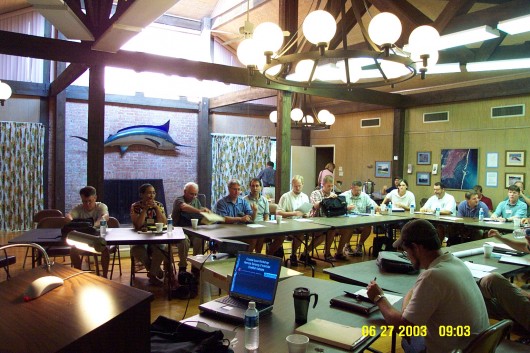
- Bill Anderson et al. (SCDNR) South Carolina’s Intertidal Oyster Survey and Management System
- Ray Grizzle et al. (UNH) Aerial photographic assessments of intertidal oyster reefs: historical analyses and GIS-based automated analyses
- Mark Finkbeiner and Bill Stevenson (CSC-NOAA) Mapping Intertidal Oysters with Airborne Multispectral Imagery: A South Carolina Pilot Project
Field Trip to Oyster Landing/Baruch Lab at Low Tide (photos) and Lunch
- Laura Schmidt, Jeff Vincent et al. (USC) USC and CICEET-funded Mapping of DNR Jones Creek Area: Hyperspectral, LIDAR, Digital Multispectral Camera (pdf) Schmidt USC, Vincent_RS,
- Ray Grizzle and Semme Dijkstra (UNH) Acoustic 101: A Comparison of Mapping and Characterization Techniques for Subtidal Oyster Reefs: Using Acoustic Techniques, Underwater Videography, and Quadrat Counts
- Martin Posey and Troy Alphin (UNCW) Survey of Southeastern North Carolina Intertidal Oyster Reefs
- Mike Savarese et al. (FGCU) Potential for utilization of remote sensing techniques in quantifying and characterizing intertidal oyster habitat…
- Karen Cullen (then Town of Hilton Head) The Use of Remote Sensing in Local Planning
- Sandra Upchurch (SCDNR, ACE NERR) ACE Basin Land-Use Initiative
Dinner drive around Baruch Property
Saturday, June 28 talks (Kimbel Lodge)
- Review and Outline Day’s Activities
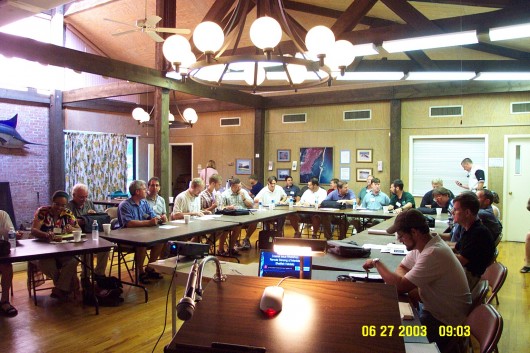
- Quester-Tangent Presentation/Field Demo (Drive to Field) Pdf called bottom classification goes as here also 3 total Mapping Intertidal Oysters with QTC VIEW North Inlet – Winyah Bay, South Carolina
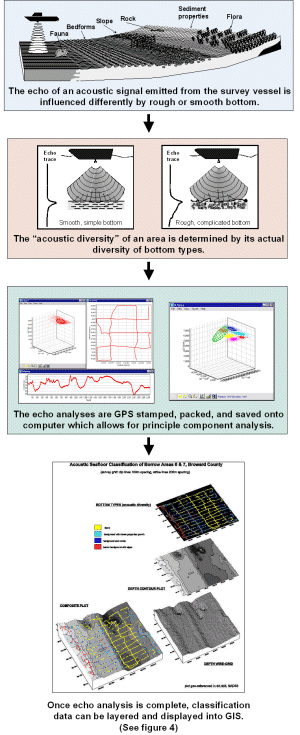
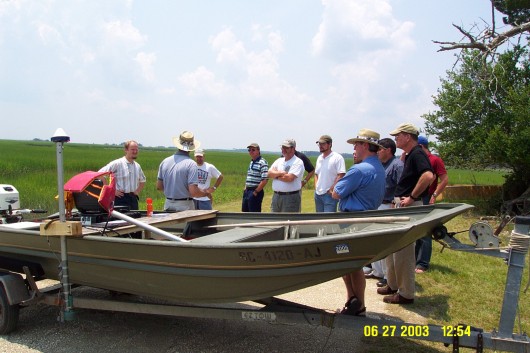
- Discussions and Questions/Interactions Among Attendees and Potential for Development of Summary Document (Grizzle, Coen, Bushek)
International Conferences on Shellfish Restoration
Twenty-Five Years of ICSR (DOC)
1996 – First ICSR held in Hilton Head, SC
1997 – no conference
1998 – Second ICSR held in Hilton Head, SC
1999 – Third ICSR/First held outside US in Cork, Ireland
2000 – 4th ICSR held in Hilton Head, SC
2001 – 5th ICSR Nainaimo, BC
2002 – 6th ICSR Charleston, SC
2003 – no conference
2004 – 7th ICSR Charleston, SC
2005 – 8th ICSR Brest, France
2006 – 9th ICSR Charleston, SC
2007 – 10th ICSR Vlissengen, Netherlands
2008 – 11th ICSR Charleston, SC
2009 – 12th ICSR PEI, Canada
2010 – 13th ICSR Charleston, SC
2011 – 14th ICSR Stirling, Scotland
2012 – 15th ICSR Groton, CT
2014 – 16th ICSR Charleston, SC
2016 – 18th ICSR Charleston, SC
2018 – 19th ICSR, Adelaide, Australia (with the Australian Shellfish Reef Restoration Network)
19th International Conference on Shellfish Restoration (with the Australian Shellfish Reef Restoration Network)
19th ICSR will be held in Adelaide, Australia from the 19th – 22nd February, 2018 (link).
This three day conference will provide a forum fostering partnerships, initiatives and the exchange of information to further the science and practice of shellfish restoration efforts around the world. Attendees will include attendees from the shellfish aquaculture industry, government, academia, NGOs and community groups, and restoration practitioners. It will feature invited speakers, panel sessions, contributed oral and posters, and interactive workshops. The venue is on the University of Adelaide campus. The event will also incorporate a meeting of the Australian Shellfish Reef Restoration Network. The call for abstracts will close on the 31 October 2017.
18th International Conference on Shellfish Restoration
18th International Conference on Shellfish Restoration was held on Nov. 16-19, 2016. The focus was “Celebrating and Inspiring Healthy Coastal Communities”. The ICSR provides a forum that fosters the partnerships, initiatives, and exchange of information necessary to further the science and practice of shellfish restoration efforts around the world. The conference featured invited speakers, panel sessions, contributed oral and poster presentations, and interactive workshops. For more information see PDF for details and meeting agenda. Meeting attendees contact info PDF

16th International Conference on Shellfish Restoration (ICSR)
Dec. 10-13, 2014—Charleston, South Carolina, USA
see http://www.scseagrant.org/Content/?cid=297 and final program
ICSR’16 featured workshops, panel discussions, case studies, and presentations addressing “Restoration in an Ever-Changing World”.
15th ICSR International Conference on Shellfish Restoration
Held as a joint NACE/MAS/ICSR meeting was held from December 12 to December 15, 2012, at the Marriott Mystic Hotel & Spa in Groton, CT.
Included the Northeast Aquaculture Conference Exposition (NACE), Milford Aquaculture Seminar and the 15th International Conference on Shellfish Restoration (ICSR). program
14th International Conference on Shellfish Restoration
August 23-27, 2011: Stirling, Scotland, UK
The 14th International Conference on Shellfish Restoration (ICSR) comes this year to the United Kingdom for the first time in its 26 years history. The conference will be held at the University of Stirling in the heart of Scotland and its title and theme will be “Shellfish: our undervalued resource”. The conference will run from the evening of August 23rd to the morning of August 27th with a gala dinner and ceilidh on the evening of August 26th at the Management Centre at the University of Stirling.
13th International Conference on Shellfish Restoration
November 17–20, 2010, Charleston, South Carolina, USA
The theme of this year’s conference will focus on the progress made in shellfish restoration over the past 25 years, since the first ICSR held in 1986 and how these efforts have shaped the role for shellfish restoration for the future.
12th International Conference on Shellfish Restoration
September 15-18, 2009: Prince Edward Island, Canada
Prince Edward Island will host the 12th International Conference on Shellfish Restoration from September 15 to 18, 2009 on Prince Edward Island, Canada. The conference brings together harvesters, researchers, resource managers and community leaders from around the world to exchange information on successful approaches to restoring shellfish populations and coastal ecosystems. Up to 200 delegates are expected to attend.
The conference is being sponsored by the Department of Fisheries, Aquaculture and Rural Development and Fisheries and Oceans Canada and co-hosted by the Prince Edward Island Shellfish Association.
![]() Conference flyer
Conference flyer
![]() Conference summary
Conference summary
11th International Conference on Shellfish Restoration
November 19-22, 2008: Charleston, South Carolina, USA
The meeting provided an opportunity for resource managers, shellfish farmers, community activists, historians, and anthropologists to exchange ideas and information which will help us restore molluscan shellfish populations while improving water quality and the environmental health of our estuarine and coastal systems.
10th International Conference on Shellfish Restoration (ICSR)
November 12-16, 2007: The Netherlands
“Innovation in the exploitation and management of shellfish resources”
Exploitation and management of shellfish populations is an important issue for stakeholder groups such as shellfish industry, nature conservation NGO’s and governments. Uncertainty in resource availability (recruitment, algal production and quality, space) puts pressure on the industry and asks for innovations.
For environmental protection, knowledge is required of impacts of shellfish exploitation and of methods for restoration and improvement of exploitation. Regulation and management of exploited shellfish resources, particularly in nature conservation areas, is a priority issue for governmental institutions as conflicts of interest are manifest.
9th International Conference on Shellfish Restoration
Improving the Health of Coastal Ecosystems through Shellfish Restoration
November 15-19, 2006: Charleston, South Carolina, USA
8th International Conference on Shellfish Restoration
Enhancement and sustainability of shellfish resources
October 2 – 5, 2005: Brest, France
7th International Conference on Shellfish Restoration
November 17-20, 2004: Charleston, South Carolina, USA
![]() Abstracts and Selected Presentations – ORDERFORM
Abstracts and Selected Presentations – ORDERFORM
6th International Conference on Shellfish Restoration
November 20–24, 2002: Charleston, SC
5th International Conference on Shellfish Restoration
September 18-21, 2001: Nanaimo, BC, Canada
4th International Conference on Shellfish Restoration
2000: Hilton Head, SC
3rd International Conference on Shellfish Restoration
1999: Third ICSR/First held outside US in Cork, Ireland
28 September – 2 October, 1999 – Jury’s Hotel, Cork, Ireland, “Coastal Shellfish – A Sustainable Resource”
Related volume:
Burnell, G.M., (Ed.), 2002. Coastal Shellfish a Sustainable Resource: Proceedings of the Third International Conference on Shellfish Restoration, Held in Cork, Ireland, 28 September 2 October 1999, Springer, 234pp.
It includes papers on lobsters, sea urchins, whelks, clams, mussels, and scallops, with a thematic emphasis on ranching, disease, environmental interactions, fisheries management, aquaculture, restoration, toxic algal blooms, and toxicity testing.
West Coast Native Oyster Restoration Workshops
West Coast Native Oyster Restoration Workshop 2010 Agenda
NOAA Restoration Center and Puget Sound Restoration Fund. 2010. West Coast native oyster restoration: 2010 workshop proceedings. U.S. Department of Commerce, NOAA Restoration Center. 49 pp.
September 16-17, 2010, Suquamish, Washington, Publication Date: February 2011.
The goal of the workshop was to renew contact among practitioners and produce tangible outcomes that would guide native oyster restoration efforts along the West Coast. In addition to discussing current restoration practices and tools, monitoring methodologies, research priorities and natural aggregations, the goal of the workshop was to draft 10-year restoration goals for California, Oregon, Washington and British Columbia. The 2010 West Coast Native Oyster Restoration Workshop united 55 people spanning eight tribes, three states, and our Canadian neighbors in a full-on, 2-day exchange of current practices and research priorities for native oyster restoration efforts on the West Coast.
West Coast Native Oyster Restoration Workshop 2007 Agenda
August 13-15, 2007: Shelton, Washington
The purposes of the workshop were: 1) To share the current state of knowledge regarding native oyster restoration efforts; 2) To bring together the best available science and identify research needs that will help to guide future restoration efforts; 3) To develop guidelines and methods for future oyster restoration efforts; and 4) To publish proceedings and guidance for oyster restoration practitioners.
West Coast Native Oyster Restoration Workshop 2006
September 6-8, 2006: San Rafael, California, USA
The purpose of the workshop was to share the current state of knowledge regarding native oyster restoration efforts; bring together the best available science and identify research needs that will help to guide future restoration efforts; and develop guidelines and methods for future oyster restoration efforts.
The following link will take you the NOAA site to download a document containing the workshop proceedings and a guidance manual for oyster practitioners.
New West Coast Olympia Oyster Paper
zu Ermgassen, P. S. E., M. W. Gray, C. J. Langdon, M. D. Spalding, and R. Brumbaugh, 2013. Quantifying the historic contribution of Olympia oysters to filtration in Pacific Coast (USA) estuaries, and the implications for restoration objectives: Aquatic Ecology Aquatic Ecology 47:149-161.
The Olympia oyster, Ostrea lurida, was formerly widespread in many Pacific coast estuaries. Following dramatic declines in the late 1800s and early 1900s, this species is now the focus of renewed restoration efforts. Restoration is undertaken for brood stock rehabilitation,as well as a range of ecosystem services such as filtration; however, these ecosystem services are as yet poorly quantified. We present the first laboratory measurements of filtration rates (FR) for O. lurida, to which we fit a model of FR as a function of dry tissue weight and water temperature. We find that O. lurida has a FR at optimum temperature similar to previously established means across oyster species at 1 g dry tissue weight (DTW), but lower than many Crassostrea species.


